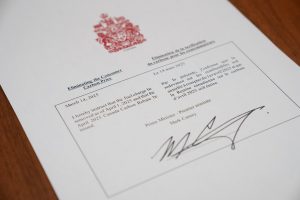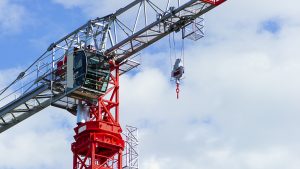Dishonest construction contractors who underreport income or deliberately misclassify their workers to evade tax and employment fees are costing the B.C. economy at least $308 million a year.
That money could pay for the new patient care tower at Lions Gate Hospital.
It could buy 45 new MRI machines.
Or it could fund the entire Ministry of Mental Health and Addictions for almost eight years, or the Industry Training Authority for three years.
We’re able to put a pricetag on the cost of the underground economy in construction due to a new report from Prism Economics and Analysis, a leading public policy firm with extensive experience providing analysis on labour market trends, programs and policies. Using data from WorkSafeBC, Statistics Canada and BuildForce Canada, Prism found B.C. and our booming construction sector are leaders, but not in good ways.
As a proportion of GDP, the underground economy is the largest in B.C. at 3.7 per cent, according to Statistics Canada. And residential construction accounts for more than one-quarter of underground economic activity, at 26.2 per cent. But what is the underground economy, exactly?
The underground economy is captured in a couple of different ways. It includes small-scale repair and renovation work that is paid in cash and not reported by the worker or the contractor to the Canada Revenue Agency. This “cash economy” is typically confined to minor jobs because corporations have no reason to evade GST and PST, since these costs are deductible, and homeowners have no interest in omitting a paper trail on larger projects because they would have no recourse if a liability arises.
This aspect of the underground economy is minor. The larger problem ꟷ and the main reason for Prism’s shocking findings ꟷ is the misclassification of workers by unscrupulous contractors trying to avoid paying income tax, Employment Insurance and Canada Pension Plan contributions, workers compensation premiums and other obligations under the Employment Standards Act, such as statutory overtime, holidays, sick leave and vacation. No T4 is issued.
Indeed, the practice of styling workers as independent operators rather than employees is the No. 1 strategy of dishonest construction contractors to avoid tax and employment obligations.
And it’s a strategy that hurts real people, including the so-called independent operators who work without the protections they deserve and to which they are entitled, like workplace injury coverage. Workers are rendered precarious and vulnerable.
There are other casualties, too. The report, which was commissioned by the BC Building Trades, shows dishonest contractors save about 20 per cent on labour, which makes it difficult for honest contractors to compete. In an industry where bids are won and lost by fractions, these contractors lose bids and pay necessarily higher WorkSafeBC premiums to make up for the deficit to the system, while their workers miss out on opportunities to earn a legitimate income and support their families.
Meanwhile, consumers who participate in the underground economy soon learn that they can’t remedy a shoddy job without admitting their own part in the illegal exchange.
This is not just a case of a handful of regular folks saving a few bucks on a long overdue bathroom renovation.
Prism’s $308 million estimate is a conservative one using measurable data from WorkSafeBC. Statistics Canada calculates the underground economy is a multibillion-dollar problem.
So we are calling on government to appoint joint compliance teams comprising officers from the Ministry of Labour, WorkSafeBC, the Employment Standards Branch and the Canada Revenue Agency to carry out spot checks and finally enforce our tax and employment regulations.
Let’s stop cheating the system, and more importantly, ourselves.
Brynn Bourke is executive director of the BC Building Trades. Send comments and Industry Perspectives column ideas to editor@dailycommercialnew.com.









Recent Comments
comments for this post are closed